Uniting around a Common Cause
- Published:
By Louisa Feiter
On August 9 1956, thousands of women took to the Pretoria streets in protest of the “pass laws” enacted during Apartheid. In commemoration of this show of solidarity in the struggle, August is celebrated as women’s month in South Africa. This uniting around a common goal is a powerful statement and there are many instances of this in Southern African history, with the various struggles for independence and as more recently, the instance of a group of Masaai women uniting to protest land seizure in Tanzania.
Churches too are a point of mobilisation and their speaking out for equality and freedom has made them an important feature of any struggle for justice. In Zimbabwe the Young Christian Students’ and Young Christian Workers' movement in the 1970’s did invaluable work in tackling the authoritarianism and injustices committed at workplaces and schools. Indeed these two movements did important work in other African countries too which is still carrying on today.
Religion as the foundation from which to mobilise is nothing new. As the Muslim News cited in 1984 in support of those Muslims that worked against the Apartheid regime: “Whoever recommends and helps a good cause becomes a partner therein; and whoever recommends and helps an evil cause shares in its burdens.” (Quran 4: 85)
Today we face different struggles and challenges against which we need to unite. In lieu with Women’s Day we want to celebrate those people that are coming together through our Faith Leaders Environmental Advocacy Training (FLEAT) programme, all who are passionate about addressing social and environmental injustices in their countries.
FLEAT is one of the newer programmes SAFCEI has started and is aimed at equipping faith leaders with the necessary skills to make positive changes in their communities. SAFCEI believes that people of faith have both a moral imperative and a special platform from which to speak out against socio-ecological injustices that face Africa. Through networking, advocacy training and sharing their experiences with each other, FLEAT aims to build a platform of common action of faith leaders across Southern Africa. Here the first group of FLEAT members share what drives them and what they hope to achieve through their participation in FLEAT.
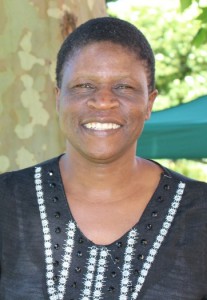 Sarah Mwandiambira is a Christian from Zimbabwe. She has had many years of experience working in NGO’s and faith based organisations working on development issues including climate justice.
Sarah Mwandiambira is a Christian from Zimbabwe. She has had many years of experience working in NGO’s and faith based organisations working on development issues including climate justice.
“In order to have a future for our nation and our children, now is the time to set a new and positive direction for our national policies such as environment, land, energy and a comprehensive…climate change policy for Zimbabwe. We need energy systems that provide clean, renewable and reliable energy that does not threaten health or the environment.”
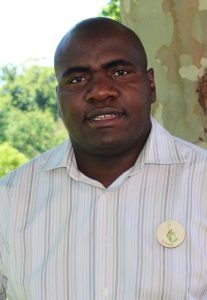 Rev. Blessing Shambare is an Anglican who is from Zimbabwe. He has served in several parishes and is currently a Theology and Missiology lecturer and tutor at the Anglican Theological Seminary. He is the Diocesan Canon Missioner and oversees the Healing Ministry of the Church. He works with the Environment Desk which oversees the Safeguarding of a Sustainable environment. He is also actively involved with the Advocacy Desk which serves the Diocese on matters of Social Justice and Transformative Action.
Rev. Blessing Shambare is an Anglican who is from Zimbabwe. He has served in several parishes and is currently a Theology and Missiology lecturer and tutor at the Anglican Theological Seminary. He is the Diocesan Canon Missioner and oversees the Healing Ministry of the Church. He works with the Environment Desk which oversees the Safeguarding of a Sustainable environment. He is also actively involved with the Advocacy Desk which serves the Diocese on matters of Social Justice and Transformative Action.
“The Christian Bible is clear on the charge to conserve and care for the environment…I am convinced that a better environment is possible when faith based institutions and faith practitioners become the anchor in the safeguarding [of the environment] and [in] influencing behaviour change to the whole concept of environment.”
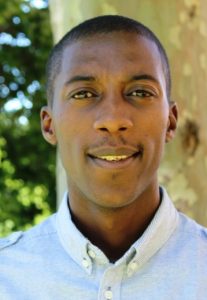 Allen Ottaro is a Catholic from Kenya. He founded the MAGiS Kenya program, a young adult ministry that connects the Catholic faith with social justice concerns. He then went on to initiate the Catholic Youth Network for Environmental Sustainability in Africa (CYNESA) with colleagues from MAGiS, of which he is the Executive Director.
Allen Ottaro is a Catholic from Kenya. He founded the MAGiS Kenya program, a young adult ministry that connects the Catholic faith with social justice concerns. He then went on to initiate the Catholic Youth Network for Environmental Sustainability in Africa (CYNESA) with colleagues from MAGiS, of which he is the Executive Director.
“After re-discovering my faith in my early twenties, Catholic Social Teaching helped me to see clearly the links between my faith and social justice concerns. Gradually, my passion to engage my faith in caring for creation became intense and more concrete in setting up CYNESA…My participation in FLEAT will equip me to develop solid advocacy programs for CYNESA, which are youth-led and driven, but rooted in the experience and wisdom of our elders.”
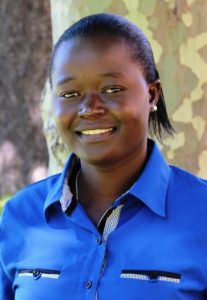 Angelic Molen from Zimbabwe is an active youth leader in the Greek Orthodox Archbishopric of Zimbabwe and is involved in climate change activities.
Angelic Molen from Zimbabwe is an active youth leader in the Greek Orthodox Archbishopric of Zimbabwe and is involved in climate change activities.
“The basic principle of life is about sustaining itself and this itself undergoes the cycle of birth, growth, death and birth. It is cyclic. We as human beings are part of this living system hence the choices we make, the actions we [take] and even the thoughts we create play a huge role in creating and affecting the environment…I wish to be educated through FLEAT so as to teach the people to begin to re-asses their vision and relationship with the environment.”
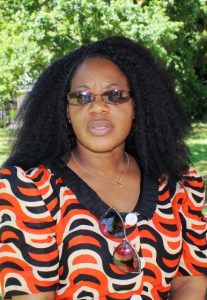 Getrude Chimange, a Catholic from Zimbabwe has long been involved with conflict transformation, peace-building and governance.
Getrude Chimange, a Catholic from Zimbabwe has long been involved with conflict transformation, peace-building and governance.
“The church has a responsibility to demand a call for responsible investment that takes care of the land and environment. Private corporations need not pursue profit with disregard to the destruction caused to land and the environment. The church; (you and I); has a moral obligation to make sure that leadership is remoralised in pursuit of a moral transformation so that the Church’s Social Teachings are practised both in faith and in our daily living in homes and communities.”
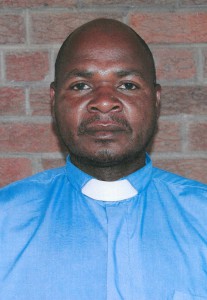 Rev. Kozanai Muchayi is from the United Church of Christ in Zimbabwe in which he has served for a decade.
Rev. Kozanai Muchayi is from the United Church of Christ in Zimbabwe in which he has served for a decade.
“I am a Zimbabwean proud of our culture, tradition and music, but today [I] am not proud of my country’s environment!
The Government of Zimbabwe, private companies, non-governmental organisations and ordinary and like-minded Zimbabwean defenders of the environment need a serious and concerted effort to stem the degradation of the environment in all its facets. The function of advocacy is critical to help arrest this disastrous process…I am dedicated to be involved with a movement that will help arrest the degradation of Zimbabwe’s environment.”
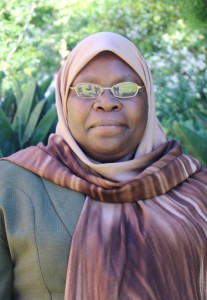
Mandireva Makwinja, is a Muslim from Zimbabwe and founded the Fatima Zahra (A.S.) Women’s Organisation of which she is currently also the director.
“[I]n Islam the environment is sacred and has an intrinsic value. It’s incumbent on us to look after natural resources, protect animals and plants and, more generally, improve and develop the environment. As the vicegerent of God, we have to channel the mercy of God to everything within our reach.”
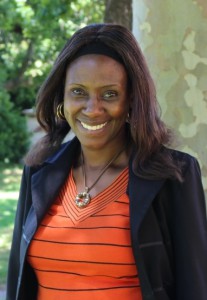 Portia Shamu, a Presbyterian from Zimbabwe, is a secondary school teacher and a youth leader in her church.
Portia Shamu, a Presbyterian from Zimbabwe, is a secondary school teacher and a youth leader in her church.
“The church is the biggest community that has got broad influence on people hence I believe that we as faith leaders are the best in advocating for the environment…there is [a] need to put mechanisms in place to protect the earth. These mechanisms can only be put in place if people are trained or educated.”
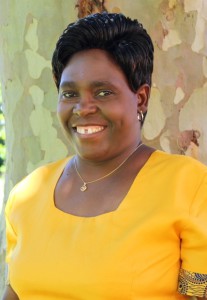 Tendai Gurupira, is from Zimbabwe and is part of the United Methodist Church. She is the Zimbabwe Episcopal Area Coordinator for the Ministry with Women, Children and Youth.
Tendai Gurupira, is from Zimbabwe and is part of the United Methodist Church. She is the Zimbabwe Episcopal Area Coordinator for the Ministry with Women, Children and Youth.
“It is important for me as a Christian to care for God’s creation, according to the Bible in Genesis 1 verse 5-30. People were given the power to care for God’s creation. I believe I am responsible for God’s creation because God granted me stewardship of creation and I should meet these stewardship duties through acts of loving care and respect to the natural world.”
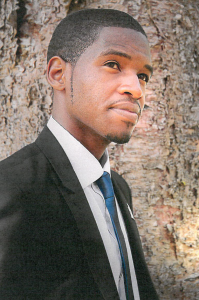
Innocent Ukomba is a Zimbabwean from the Christian faith. He has founded several initiatives, among them CIFA, a movement that works with churches in addressing climate change.
“Climate change is a huge and monstrous challenge that requires passion driven and well-coordinated efforts if it will be stuck down. Amazingly, small actions driven by many people can generate a commensurate level of impact to address and mitigate climate change…the church is a single machine that has an unimaginable power to address climate change and all related matters.”
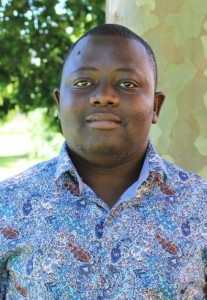
Rev. Tichaona Nigel Chikanya is a Presbyterian from Zimbabwe who has been a pastor in several churches. His work aims at uniting the work of the church with the work of the community.
“I am a well-engaged leader who strongly believes in community development. I am currently working on developing a model for public theology in Zimbabwe; this together with my passion is aimed at making a difference in the community at large and also [in the] community of faith.”
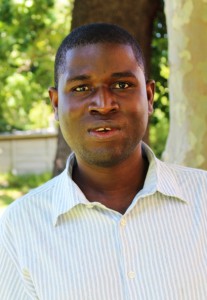 McCarthy Jailosi Samalani is a Muslim from Malawi. He works as a Program Manager for Health at the Islamic Organisation for Health and Development (ISOHEDE) and is a facilitator, champion and an advocate in his community. During the January 2015 Malawi floods he went to the affected areas and lobbied for support for those affected. He was chosen to attend the Emerging Leaders Multi-Faith Climate Convergence that took place in Rome on 27th June – 1 July 2015.
McCarthy Jailosi Samalani is a Muslim from Malawi. He works as a Program Manager for Health at the Islamic Organisation for Health and Development (ISOHEDE) and is a facilitator, champion and an advocate in his community. During the January 2015 Malawi floods he went to the affected areas and lobbied for support for those affected. He was chosen to attend the Emerging Leaders Multi-Faith Climate Convergence that took place in Rome on 27th June – 1 July 2015.
“I am inspired and driven by surah 6(Al-anam) verse 165 in which Allah said “We appointed you people as viceroys of the earth…The lessons gained from [FLEAT] will be used back home in Malawi and the following are what I plan in order to implement the skills attained: conducting advocacy meetings with religious leaders, holding interface forums, raising community awareness, conducting training sessions and using media among others.”
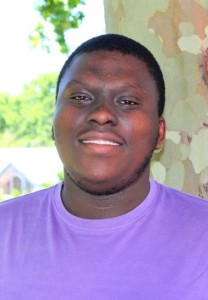 Nkosiyazi Zungu is from South Africa and is an Anglican. He was recently licenced to serve as a lay minister within the Cathedral of the Holy Nativity.
Nkosiyazi Zungu is from South Africa and is an Anglican. He was recently licenced to serve as a lay minister within the Cathedral of the Holy Nativity.
“I am a firm believer…that everything that is on this earth was to show God’s beauty to our lives and that it is my responsibility to keep it as beautiful as it can possibly be. God has given me a gift of being able to relate with people of any age group and culture. I have worked with various organisations that deal with people and various issues that affect our society…[FLEAT] will give me knowledge that I will be able to use and educate communities around me.”
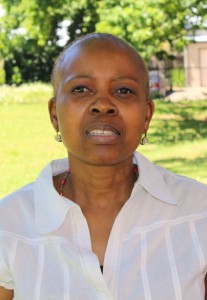 Ndivile Mokoena, a Catholic from South Africa, volunteers on Justice and Peace, a ministry in the Catholic Church which, amongst other things, does environmental work in the community. She is also part of the Women in Energy & Climate Change Forum and attended both COP17 and COP18.
Ndivile Mokoena, a Catholic from South Africa, volunteers on Justice and Peace, a ministry in the Catholic Church which, amongst other things, does environmental work in the community. She is also part of the Women in Energy & Climate Change Forum and attended both COP17 and COP18.
“The FLEAT programme will enable me to help our [Justice and Peace] group expand our programmes on environment to other community entities; run awareness campaigns effectively especially in areas around mine dumps in Soweto. This training will definitely empower me and the group to help women in our community and church, as we are currently encouraging them to form cooperative focusing on environmental entrepreneurship.”
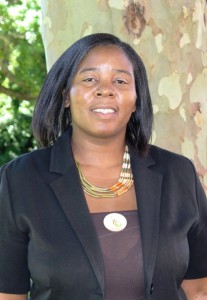 Sthembile Sibiya, a Christian from South Africa, works for the KwaZulu Regional Christian Council (KRCC) and has been assisting in the Disaster and Risk Reduction Project which involves educating communities on climate change and environmental justice.
Sthembile Sibiya, a Christian from South Africa, works for the KwaZulu Regional Christian Council (KRCC) and has been assisting in the Disaster and Risk Reduction Project which involves educating communities on climate change and environmental justice.
“Besides the issue of mining our area has a shortage of water and well known dams are getting drier by the day. The people affected by these issues are people affiliated with our organisation. [Through FLEAT] I can gain skills as to how [I can] assist them in advocating for environmental justice with churches and schools as well as the community at large to make sure that they take part in protecting their own environment and natural resources.”
Thank you to the Zambia Council of Churches’ (ZCC) for its continued presence, support and endorsement of FLEAT!
Who we are

SAFCEI (Southern African Faith Communities’ Environment Institute) is a multi-faith organisation committed to supporting faith leaders and their communities in Southern Africa to increase awareness, understanding and action on eco-justice, sustainable living and climate change.
Featured Articles
-

South Africa: Who Ends Up Paying If DMRE Cooks the Price of Nuclear Power?
-

South Africa’s nuclear energy expansion plans continue to draw criticism, environmental NGOs chew over legal challenge
-

Earthlife Africa and SAFCEI respond to latest unsettling nuclear news regarding the ministerial determination
-

Open Wing Alliance Africa (Virtual) Summit 2023
-

The Green Connection and SAFCEI respond to energy minister's divisive and deflecting comments
-

Job Vacancy: FLEAT Coordinator







